Penn Plasterers: Any time you're engaged in refurbishments or home improvements on your property or business in Penn it is more or less certain that you will either need to have some fresh plaster put onto to a new area or some old plaster walls repaired. Plastering is a skillful trade and although you are perhaps pretty versatile at DIY, it's not a task that you should try to do by yourself, except if you have extreme confidence in your abilities. This particularly applies if there is a ceiling that needs skimming, because you'll probably get your home and yourself in a bit of a mess if you should try it. You would be better off calling in an experienced plasterer to tackle this job, and although you should not have any trouble locating a plasterer in Penn, uncovering one who's got the time free to fit you in might be somewhat more difficult. Plasterers, just like many tradesmen, are usually in great demand, so if at all possible try to schedule the job a few weeks or months before.
There are plenty of home improvement tasks, even small ones, which end up with some plastering work having to be done. It may be fitting coving or decorative mouldings before decorating, plaster skimming dry lining, plastering over artex or plaster repair before tiling. The truth is, it may be any one of dozens of plastering related chores.
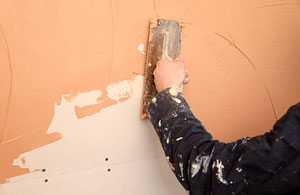
Before work starts you must check out potential Penn plasterers to make sure that they really know their stuff. Ask to see some photos or a portfolio of completed work. You obviously don't want to be hiring a "cowboy" for this kind of project. Inferior plastering can cause significant complications down the line, and it may not even be apparent until you start the decorating.
It's when the painting and decorating starts that any imperfections become startlingly obvious. Your newly plastered surfaces will probably look even worse with the sun shining on them. To avoid issues like this, select only from experienced plasterers in Penn.
It is always important to keep in mind that plaster should be flat and smooth, as it's simply a base upon which other materials are applied. Irregular surfaces are tricky to conceal, however small imperfections and cracking can be easily repaired later without much problem. Areas that are unevenly plastered can result in difficulties with fitting skirting boards, the painting and decorating of the surfaces, any area of tiling (bathrooms or kitchens) and the installation of kitchen units.
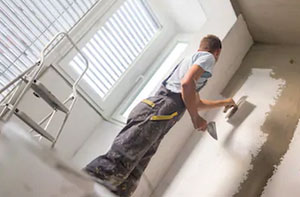
What you actually need is a polished finish directly from the trowel, and the most experienced Penn plasterers can be expected to produce results like this. Any specialist plasterer will explain that a properly plastered wall or ceiling should never need sanding down to obtain a decent finish. If any amount of vigorous sanding is necessary to smooth the plastered surfaces, they were not properly done to begin with. If you notice the electric sanding machines coming out you ought to be very suspicious.
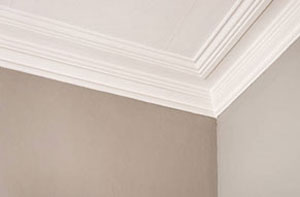
In recent times, one of the most common tasks a plasterer is requested to do, is plaster over an old artex ceiling. A much loved decorative finish for ceilings in Penn during the nineteen seventies and eighties, the popularity of artex has decreased in recent times. In order to get your ceilings looking sleek and modern once again, your Penn plasterer will be happy to cover them up with a smooth new finish. Plastering over artex is preferable to removing it because it is quite difficult to take off or repair, which is doubtless why its popularity has waned.
DIY Plastering Penn: Although when you have plastering work which needs to be done in your house in Penn, it's much better to call in a reputable plasterer to handle it, it is quite possible to have a shot on your own, if you have self-belief and are reasonable at do-it-yourself. Practicing on an out-of-sight area or a spare bedroom is definitely a great idea when you are starting your first plastering journey. If at all possible try to pick a wall that's already got an inaccurately plastered surface, so that your efforts can hardly make it any worse. This will allow you to test out your newly found skills and should be a lot less stressful than tackling a wall surface that everybody can see. It is possible to re-plaster a wall surface as many times as you want within reason, and you can simply re-do it if you don't do a decent job right off the bat.
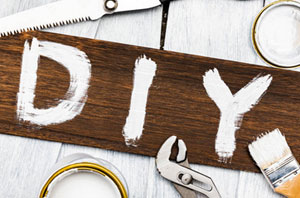
If you're interested in some tips and hints to help you on your way, you might consider watching some YouTube tutorials. Or, if you're really eager to learn plastering you could even think about signing up for a course at a nearby school or college. Like most "hands on" processes, the more that you practice the more accomplished you become at plastering. Following the tried and tested ways is usually better when plastering, although through trial and error you may even think up your own strategies for getting that perfect finish. Because plastering is all about self-confidence, the more often you do it, the more confident you will get. You will be able to start plastering the more important walls of your property as soon as you have mastered the skill to a level you are satisfied with. If the whole thing goes awry and you make a mess of the plastering, it will still be possible hire a professional plasterer to correct your mistakes.
Artexing Penn
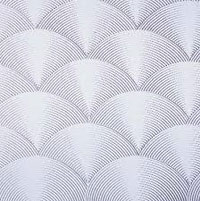
Particularly popular during the nineteen seventies and eighties, artex has long been a good way to add an ornamental finish to a plastered ceiling, and also to hide uneven surfaces and cracks. Whilst once upon a time there were loads of tradesmen who did nothing but apply artex and do artex removal, nowadays it's not quite so straightforward to locate a plasterer that will do artexing. With designs like circles, bark, scroll, basket & roses, criss-cross, hook & line, stipple, medusa, swirl, pairs or broken leather, there appeared to be something for everyone. There was always an artex pattern that was suitable, no matter what your tastes. Every one of these artex styles can still be done today if you're able to track down a local plumber or artexer prepared to do it. Stay away from "handyman" types who will just "have a go". Keep in mind, however, that artex isn't the simplest stuff to patch or repair, which is a primary reason why it's appeal waned in the first place. (Tags: Artex Removal Penn, Artexing Penn, Artex Penn, Artex Patching Penn, Artex Repairs Penn)
Tools for Plastering
The majority of do-it-yourself and craftsmen's toolkits do not contain many of the tools that are needed for plastering, which is why it is frequently better to seek the assistance of a specialist plasterer in Penn, when you have this kind of work in the offing. Here are just some of the tools that a Penn plasterer will use on the job:
- Plastering Rule
- Plasterer's Hawk
- Plaster Mixing Paddle
- Finishing Trowel
- Drywall Rasp
- Plasterer's Trowel
- Jointing Knife
- Plasterboard Carrier
- Stilts
- Edging Trowel
- Plastering Float
- Plaster Pan & Buckets
Plaster
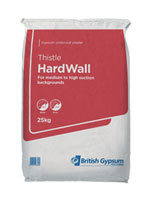
Employed for protecting and decorating the walls and ceilings of buildings, plaster is a material that's been in use since ancient Egyptian times. In the UK the term "plaster" generally pertains to a material which is utilized on the interior of buildings, whilst the material used on external areas is referred to as "render". The plaster blend itself can include different ingredients but most frequently comprise of either cement, gypsum, or lime. All these mixtures work in a similar way, but have got different uses. Mixed with water to create a stiff but easily workable paste, plaster is just a dry powder when manufactured. The reactions between the water and the plaster powder produces heat through crystallization and the mix then hardens. If you need to buy plaster products, there are plenty of places that you can do this including B&Q, Wickes, Travis and Perkins, British Gypsum or Screwfix.
Decorative Plastering Penn
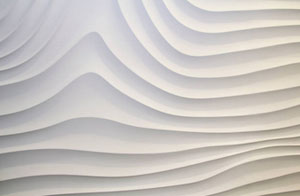
Since the days of the ancient Egyptian builders, types of plaster have been used for both decorative and practical purposes. Preparations of mud and clay were used in those long past days. In thirteenth Century London, a form of plaster was placed on the internal walls of houses and buildings as a defence against the spread of fires. Buildings of the Victorian and Georgian periods were widely decorated with features and mouldings made out of gypsum. Gifted plasterers today are able to produce impressive effects by integrating modern day materials with age-old techniques. This can take countless shapes and can incorporate the application of brackets, dentils, ceiling roses, corbels, cornice finishes, coving and niches.
Dry Lining Penn Buckinghamshire UK
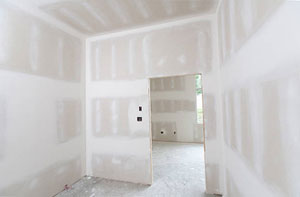
Dry Lining Penn: Certain plasterers in Penn also offer dry lining services (plasterboarding), which are required in plenty of home improvements. Dry lining is the procedure where plasterboard is affixed to a wooden studding or joist, a brickwork or masonry surface or metal Gypframe to produce a wall surface that doesn't need plastering. While you could paint or decorate the plasterboard surface itself, normally most folks opt to have the plasterboard skimmed with a thin plaster coat afterwards to give it that extra special, smooth finish. In regards to fittings, when attaching to a brick or masonry wall the "dot and dab" method is used, when fixing to a metal framework self-drilling, self tapping (Jack-Point screws) are used and when fixing plasterboard to wood studding or joists, nails or drywall screws are used. (Tags: Dry Lining Penn, Dry Liners Penn, Plasterboarding Penn)
Rendering Penn
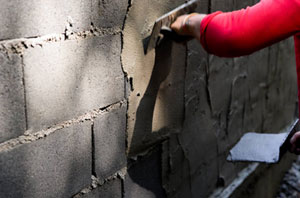
Rendering Penn: Rendering is the procedure where a mixture of lime, sand, cement and water is put on to walls (both exterior and interior), in order to achieve a textured or smooth surface, with a technique that is not dissimilar to plastering. A popular technique across Southern Europe, rendering is really widespread in the Mediterranean countries, especially in Italy, Spain and Greece. Mainly employed for aesthetic purposes a rendered surface has got some fire retardant properties and is also waterproof. There are 2 ways that a rendered surface can be coloured, either it can be painted as soon as it is dry, or the colour can be added to the render itself, producing a finished surface that is much more resilient and long lasting. (Tags: Rendering Penn, Renderers Penn)
Plastering Courses Penn

Plastering Courses Penn: The easiest way to either learn the basics of the art of plastering or to have the required knowledge and skills to kick start a career in plastering is to take a plastering course at a training centre or college. You'll find there are a number of plastering courses available for both newbies and existing tradesmen wanting to expand their plastering techniques. There are beginner and advanced plastering courses offered in either City & Guilds or NVQ. Beginner courses in plastering (level one courses) tackle such things as applying scratch coats (walls), installing sheet materials, preparing background surfaces, applying floating coats, mixing up plaster materials and putting on set coats. Intermediate and advanced (level 2 courses and diplomas) deal with things such as plastering to external backgrounds, reverse moulds for fibrous work, fibrous plasterwork, cement and sand screeding and dry lining. Do a search on Yahoo or Google to find currently available plastering courses in Penn. You can check out City & Guilds, NVQ and Diploma courses in plastering and dry lining by going HERE.
Plasterer Penn
A tradesperson who works solely with plaster materials, a plasterer in Penn is a professional who carefully spreads a smooth, even layer of mixed plaster over previously coarse and unglazed surfaces, which can then be painted or decorated. Plastering has been in existence for hundreds of years and has been a popular building finishing and repair solution for thousands more. In these modern times, plaster is used to generate a smooth, even surface on the interior walls of commercial and residential buildings. It is also often used to form ornamental moldings on the ceiling and other areas of the wall. The plastering process also plays an essential role in many home improvement projects in Penn, and can be used in the finishing of porches, garages, extensions, loft conversions and more.
Plastering Tasks Penn

Penn plastering specialists can usually help with ceiling replacements Penn, lime rendering, polymer screeds, skimming over existing plaster surfaces, plastering over artex, ceramic tiling, cornices and ceiling roses, ceiling overboarding, drywall taping in Penn, lay in grid suspended ceilings, fibrous plastering, floor levelling, relief plastering, bonding, tyrolean rendering, damaged plaster repairs, false ceilings, Venetian polish plastering Penn, lath and plaster walls in Penn, concrete plaster, wall crack repairs, dot and dab walling, wet dashing, skimming plasterwork, stucco plastering, float and set plastering, blown plaster Penn, exterior screeding and rendering, dragged plastering Penn, polished plaster in Penn and other plastering work in Penn, Buckinghamshire.
Help and Guidance

To uncover a list of approved plasterers visit the Federation of Plastering and Drywall Contractors (FPDC) website. To see what's happening in the field of plastering, rendering and screeding visit a plastering forum. For more information about the history of plaster and plastering, plastering tools and materials, plasterer's tasks, external plastering techniques, traditional plasterer's methods and interior plastering techniques, you could check out Wikipedia and search for "Plasterwork". (Tags: Plasterers Penn, Plastering Penn, Plasterers Buckinghamshire, Plasterer Penn).
Penn Plastering Services
- Penn Artexing
- Penn Plaster Repairs
- Penn Artex Covering
- Penn Plaster Overskimming
- Penn Plasterers
- Penn Domestic Plastering
- Penn Plasterer
- Penn Plaster Skimming
- Penn Coving Installation
- Penn Ceiling Replacements
- Penn Plaster Patching
- Penn Commercial Plastering
- Penn Internal Rendering
- Penn Dry Lining
Other Useful Trades in Penn Buckinghamshire

Not surprisingly, when you happen to be doing home remodeling in Penn, Buckinghamshire, you are likely to be in need of all sorts of different tradespeople and along with plasterers in Penn, Buckinghamshire, you could also need artexing in Penn, plasterboarders in Penn, bricklaying in Penn, rubbish removal in Penn, pebble dashers in Penn, dry lining in Penn, external wall insulation in Penn, internal rendering in Penn, builders in Penn, screeding in Penn, cornice fitters in Penn, carpenters & joiners in Penn, polished plaster in Penn, electric socket installation in Penn, painters & decorators in Penn, plaster mouldings in Penn, end of tenancy cleaners in Penn or tiling services in Penn.
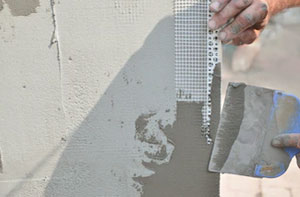 Plasterers Penn
Plasterers Penn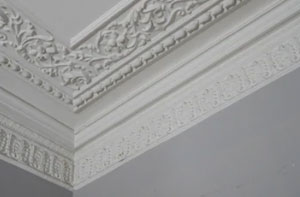 Plastering Near Me
Plastering Near Me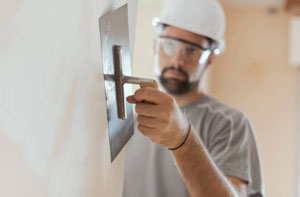 Plasterer Penn
Plasterer PennPlastering Jobs Penn: Get plastering jobs in Penn here: Penn Plastering Jobs
More Buckinghamshire plasterers: High Wycombe Plasterers, Iver Plasterers, Fenny Stratford Plasterers, Marlow Plasterers, Aylesbury Plasterers, Great Missenden Plasterers, Amersham Plasterers, Burnham Plasterers, Milton Keynes Plasterers, Chesham Plasterers, Princes Risborough Plasterers, Wooburn Plasterers, Buckingham Plasterers, Chalfont St Peter Plasterers, Beaconsfield Plasterers, Hazlemere Plasterers, Newport Pagnell Plasterers, Stony Stratford Plasterers and Bletchley Plasterers.
Polished Plaster Penn - Screeding Penn - Plastering Penn - Rendering Penn - Plasterers Penn - Decorative Plastering Penn - Artexing Penn - Plaster Skimming Penn - Plasterboarding Penn





